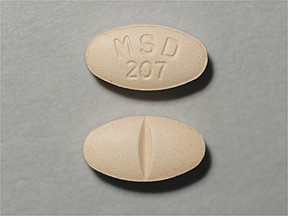LISINOPRIL - ORAL
PHONETIC PRONUNCIATION: (lyse-IN-oh-pril)
COMMON BRAND NAME(S): Prinivil, Zestril
GENERIC NAME(S): lisinopril

Medically reviewed by Matt Sommers, PharmD. Last updated on September 01, 2023.
Uses
USES: Lisinopril is used to treat high blood pressure. Lowering high blood pressure helps prevent strokes, heart attacks, and kidney problems. It is also used to treat heart failure and to improve survival after a heart attack. Lisinopril belongs to a class of drugs known as ACE inhibitors. It works by relaxing blood vessels so blood can flow more easily.
How to use LISINOPRIL - ORAL
HOW TO USE: Take this medication by mouth with or without food as directed by your doctor, usually once daily. If you are using the suspension form of this medication, shake the bottle well before each dose. Carefully measure the dose using a special measuring device/spoon. Do not use a household spoon because you may not get the correct dose. The dosage is based on your medical condition and response to treatment. For children, the dosage is also based on weight. To reduce your risk of side effects, your doctor may direct you to start this medication at a low dose and gradually increase your dose. Follow your doctor's instructions carefully. Use this medication regularly to get the most benefit from it. To help you remember, take it at the same time each day. Keep taking this medication even if you feel well. Most people with high blood pressure do not feel sick. For the treatment of high blood pressure, it may take 2 to 4 weeks before you get the full benefit of this medication. For the treatment of heart failure, it may take weeks to months before you get the full benefit of this medication. Tell your doctor if your condition does not get better or if it gets worse (for example, your blood pressure readings remain high or increase).
Side Effects
Precautions
Interactions
Overdose
Images
Reviews
Faq for LISINOPRIL - ORAL
Lisinopril is a medication that belongs to the class of drugs known as ACE inhibitors. It is used to treat high blood pressure (hypertension) and certain heart conditions.
Lisinopril works by relaxing blood vessels, which helps to lower blood pressure and improve blood flow. It also reduces the workload on the heart, making it an effective treatment for various heart conditions.
Common side effects of Lisinopril may include dizziness, fatigue, headache, persistent dry cough, and gastrointestinal symptoms like nausea or diarrhea. These side effects are usually mild and go away on their own.
Although rare, Lisinopril can cause serious side effects such as allergic reactions, swelling of the face/lips/tongue, severe dizziness, difficulty breathing, and kidney problems. If you experience any of these symptoms, seek immediate medical attention.
Lisinopril should not be used during pregnancy as it may harm the unborn baby. If you are pregnant or planning to become pregnant, consult your doctor for alternative medications.
Yes, Lisinopril can interact with certain medications like diuretics, nonsteroidal anti-inflammatory drugs (NSAIDs), potassium supplements, and other blood pressure medications. Always inform your doctor about all the medications you are taking to avoid potential drug interactions.
Lisinopril may take a few weeks to show its full effects in lowering blood pressure. However, some symptoms like improved breathing or reduction in swelling may be noticed within a few days.
Lisinopril can be taken with or without food, but it is generally recommended to take it consistently with or without meals to maintain a steady level of the medication in your body.
No, Lisinopril should not be stopped abruptly without consulting your doctor. Suddenly stopping Lisinopril may cause a sudden increase in blood pressure or worsening of heart conditions. Your doctor will advise you on how to gradually reduce the dose if discontinuation is necessary.
Drinking alcohol in moderation is usually safe while taking Lisinopril. However, excessive alcohol consumption may increase the risk of side effects such as low blood pressure, dizziness, and drowsiness. It is always best to consult your doctor regarding alcohol use while on Lisinopril.
Warning
WARNING: This medication can cause serious (possibly fatal) harm to an unborn baby if used during pregnancy. It is important to prevent pregnancy while taking this medication. Consult your doctor for more details and to discuss the use of reliable forms of birth control while taking this medication. If you are planning pregnancy, become pregnant, or think you may be pregnant, tell your doctor right away.
Disclaimer
IMPORTANT: HOW TO USE THIS INFORMATION: This is a summary and does NOT have all possible information about this product. This information does not assure that this product is safe, effective, or appropriate for you. This information is not individual medical advice and does not substitute for the advice of your health care professional. Always ask your health care professional for complete information about this product and your specific health needs.







For : Worked for me
By Kale on 17 Jul, 2023